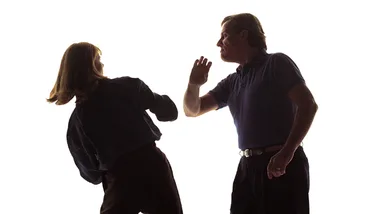MYTH: The victim can see the problem
Mary Thomas thought that she was going crazy. Her charming husband was adored by their rural community, and yet behind closed doors he was hostile and abusive.
Years of abuse was taking its toll. Mary’s husband was controlling and narcissistic. He belittled and degraded her and when he lost his temper he lashed out physically, punching, kicking and throwing her to the ground. Her once buoyant self-esteem was in tatters.
But despite the years of abuse Mary couldn’t see that she was the victim of domestic violence. “I thought it was all my fault. I felt really ashamed,” she says.
Sadly this is a common scenario among victims of domestic violence.
Diane Coleman is a program manager at BaptistCare and chair of NSW’s men’s behaviour change network. She says that it is often hard for women in abusive relationships to acknowledge the reality of their situation.
“It messes with the woman’s mind when he’s calling her all sorts of names, telling her that she’s useless or worthless. She gradually starts to think that she’s crazy.
“He denies her experience by saying things like, ‘I’m not treating you badly’, ‘I’m not yelling at you’. She starts to believe that what he is saying is true. It makes it so hard for her to acknowledge reality because he is denying her reality,” Coleman explains.
Like Mary, many women in abusive relationships also experience shame. “It’s very hard to admit that you are in an abusive relationship,” says Coleman.
MYTH: Men can’t be victims of domestic violence
Some men do experience abuse as well. However, according to Coleman, the reality is that when men are abused, 80% of victims are abused by another male.
And in 50 to 60 per cent of cases, the man is not the primary victim. This means that after years of abuse his victim has started to retaliate. “Most of the time [the man] is the perpetrator He needs to look at what he’s been doing in his relationship,” she says.
Coleman notes that of course if the man is the primary victim then he needs assistance. But we need to listen to his story very carefully.
MYTH: There’s nothing we can do
Rob Ellis, General Manager Community Services at BaptistCare, says that domestic violence is a community issue.
“When we think about the network of relationships and families that are impacted by violence it actually has a ripple effect out on the whole community.
“It impacts workplaces in terms of productivity, and in terms of friendships, women are often withdrawing from their communities – they’re isolated by the violence,” he explains.
Ellis notes that even if domestic violence isn’t happening in your immediate circle it is happening in your community.
“It is a community issue. We need to work together to change the story,” he says.
Ellis says that we need to start with everyday behaviour that demeans the way that women are portrayed. This can be as simple as calling out sexist jokes.
Diane Coleman agrees, she says that our culture of gender sterotyping creates a breeding ground for inequality between men and women.
“Equality is a myth. If you go to a typical business meeting you’ll find that a man’s voice will still be heard more than a woman’s voice – even if she’s saying the same thing. If a woman stands up to a guy then she’ll be a ‘bitch’ or ‘nagging’ – but he is just being a man”
On top of this, Coleman notes that as a society we need to challenge our model of masculinity. “Most of the men in our culture are schooled to ‘man up’,” she says.
This includes ideas such as ‘boys don’t cry’ and ‘men shouldn’t show their feelings’. But Coleman says that we need to reject this idea of masculinity.
“We need a model of masculinity where men can be proud of themselves as men and be totally committed to being respectful, no matter what.”
If you or anyone you know needs support, call 1800-RESPECT on 1800 737 732 at any time.

.jpg?resize=380%2C285)

